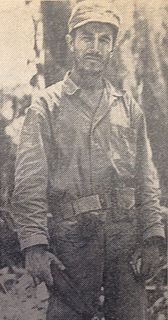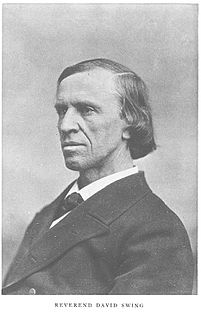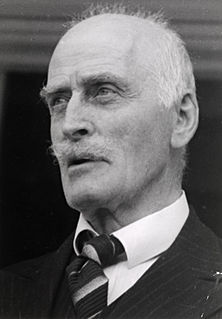A Quote by William Shakespeare
Nothing in his life became him like leaving it.
Related Quotes
My father was a doctor, but his passion was making cars, and he was also very good at carpentry. He was a gem, and I don't blame him for not understanding me. When I told him that I would be leaving, he checked his pocket and took out 100-rupee note and gave it to me. He did not like that I was leaving, yet he gave me the money.
The life of Lincoln should never be passed by in silence by young or old. He touched the log cabin and it became the palace in which greatness was nurtured. He touched the forest and it became to him a church in which the purest and noblest worship of God was observed. His occupation has become associated in our minds with the integrity of the life he lived. In Lincoln there was always some quality that fastened him to the people and taught their to keep time to the music of his heart.
Never did he once consider directing his hatred toward the hunters. Such an emotion would have destroyed him ... His subconscious knew what his min did not guess-that hating them would have consumed him, burned him up like a piece of soft coal, leaving only flakes of ash and a question mark of smoke.
A tutor should not be continually thundering instruction into the ears of his pupil, as if he were pouring it through a funnel, but, after having put the lad, like a young horse, on a trot, before him, to observe his paces, and see what he is able to perform, should, according to the extent of his capacity, induce him to taste, to distinguish, and to find out things for himself; sometimes opening the way, at other times leaving it for him to open; and by abating or increasing his own pace, accommodate his precepts to the capacity of his pupil.
The other one he loved like a slave, like a madman and like a beggar. Why? Ask the dust on the road and the falling leaves, ask the mysterious God of life; for no one knows such things. She gave him nothing, no nothing did she give him and yet he thanked her. She said: Give me your peace and your reason! And he was only sorry she did not ask for his life.
St. Augustine and St. Thomas define mortal sin to be a turning away from God: that is, the turning of one's back upon God, leaving the Creator for the sake of the creature. What punishment would that subject deserve who, while his king was giving him a command, contemptuously turned his back upon him to go and transgress his orders? This is what the sinner does; and this is punished in hell with the pain of loss, that is, the loss of God, a punishment richly deserved by him who in this life turns his back upon his sovereign good.
But the truth, he knows, is otherwise. His pleasure in living has been snuffed out. Like a leaf on a stream, like a puffball on a breeze, he has begun to float towards his end. He sees it quite clearly, and it fills him with (the word will not go away) despair. The blood of life is leaving his body and despair is taking its place, despair that is like a gas, odourless, tasteless, without nourishment. You breathe it in, your limbs relax, you cease to care, even at the moment when the steel touches your throat.
But instead of taking the cue to leave, Patch crossed to Scott in three steps. He flung him around to face the wall. Scott tried to get his bearings, but Patch slammed him against the wall again, disorienting him further. “Touch her,” he said in Scott’s ear, his voice low and threatening, “and it’ll be the biggest regret of your life.” Before leaving, Patch flicked his eyes once in my direction. “He’s not worth it.” He paused. “And neither am I.
His face set in grim determination, Richard slogged ahead, his fingers reaching up to touch the tooth under his shirt. Loneliness, deeper than he had never known, sagged his shoulders. All his friends were lost to him. He knew now that his life was not his own. It belonged to his duty, to his task. He was the Seeker. Nothing more. Nothing less. Not his own man, but a pawn to be used by others. A tool, same as his sword, to help others, that they might have the life he had only glimpsed for a twinkling. He was no different from the dark things in the boundary. A bringer of death.






































